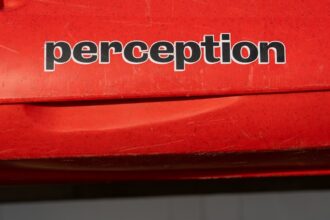You may find yourself in moments where you feel a profound disconnection from your own identity. This sensation can be unsettling, as if you are observing your life from a distance rather than actively participating in it. You might look in the mirror and struggle to recognize the person staring back at you, feeling as though you are merely a spectator in your own existence.
This disconnection can manifest in various ways, such as questioning your beliefs, values, and even your memories. You may wonder if the choices you’ve made truly reflect who you are or if they are merely a product of external influences. This feeling of estrangement can lead to a sense of emptiness, as if a vital part of you is missing.
You might experience moments of introspection where you search for meaning and purpose, only to come up empty-handed. It’s as if you are trapped in a fog, unable to grasp the essence of your own being. This disconnection can be exacerbated by life’s stresses, making it difficult to engage with your thoughts and emotions fully.
You may find yourself longing for a deeper connection with yourself, yearning to bridge the gap between who you are and who you feel you should be.
Key Takeaways
- Feeling disconnected from oneself can lead to a sense of emptiness and lack of purpose.
- Perceiving the world as unreal may result in feelings of detachment and confusion.
- Emotional numbness can make it difficult to experience and express emotions.
- A distorted sense of time can lead to disorientation and a feeling of being out of sync with the world.
- Lack of personal agency can result in a sense of powerlessness and inability to make choices.
Perceiving the World as Unreal
As you navigate through life, there may be times when the world around you feels surreal or detached from reality. This perception can create a sense of alienation, as if you are living in a dream or watching a movie unfold rather than experiencing life firsthand. You might notice that familiar places seem foreign, and everyday interactions feel scripted or rehearsed.
This altered perception can leave you questioning the authenticity of your surroundings and the experiences that shape your life.
The vibrant colors of the world may appear muted, and sounds may seem distant or distorted.
You might find it challenging to engage with your environment fully, leading to a sense of isolation. This detachment can be disorienting, making it difficult to trust your senses or to feel grounded in reality. As you seek to make sense of this experience, you may yearn for clarity and connection, hoping to reestablish a sense of normalcy in your perception of the world.
Emotional Numbness

Emotional numbness can creep into your life unexpectedly, leaving you feeling as though you are living in a muted state. You may find it challenging to experience joy, sadness, or any strong emotions at all. This numbness can be particularly distressing, as it robs you of the ability to connect with your feelings and those of others.
You might go through the motions of daily life, but inside, there is a void where emotions once thrived. This emotional detachment can stem from various sources, including trauma, stress, or overwhelming life changes. You may have built walls around your heart as a protective mechanism, but in doing so, you inadvertently shut yourself off from the richness of human experience.
As days turn into weeks and weeks into months, this numbness can become a persistent companion, making it difficult to engage with the world around you.
Distorted Sense of Time
| Factors | Metrics |
|---|---|
| Duration | Perception of time passing faster or slower than reality |
| Causes | Stress, anxiety, depression, medication side effects |
| Effects | Difficulty in time management, feeling disoriented |
| Treatment | Therapy, relaxation techniques, medication adjustment |
Time can often feel like an elusive concept, slipping through your fingers like sand. You may find that hours stretch into eternity during moments of boredom or anxiety, while days blur together in a whirlwind of activity. This distorted sense of time can leave you feeling disoriented and out of sync with the world around you.
You might struggle to remember when certain events occurred or feel as though time is moving at an accelerated pace. This phenomenon can be particularly pronounced during periods of stress or emotional turmoil. You may feel as though time is both standing still and racing forward simultaneously, creating a paradox that is difficult to comprehend.
In these moments, it’s common to lose track of deadlines or important dates, leading to feelings of frustration and inadequacy. As you navigate this distorted perception of time, you may yearn for a sense of stability and rhythm in your life, hoping to regain control over your daily experiences.
Lack of Personal Agency
A lack of personal agency can leave you feeling powerless and trapped in circumstances beyond your control. You may find yourself going through the motions of life without feeling empowered to make choices that align with your desires and values. This sense of helplessness can be disheartening, as it undermines your ability to shape your own destiny.
You might feel as though external forces dictate your path, leaving little room for personal expression or autonomy. This feeling can stem from various factors, including societal expectations, relationships, or even internalized beliefs about your worthiness. You may grapple with self-doubt and fear of failure, leading you to avoid taking risks or pursuing opportunities that could enhance your life.
As days pass without meaningful action or decision-making, you may begin to question your ability to effect change in your own life. The longing for agency can become a driving force within you, pushing you to reclaim your power and take steps toward a more fulfilling existence.
Difficulty Connecting with Others

In a world that thrives on connection and relationships, experiencing difficulty in forming bonds with others can be particularly isolating. You may find it challenging to engage in conversations or establish meaningful connections with friends and family. This struggle can stem from various factors, including emotional numbness or feelings of disconnection from yourself.
As a result, interactions may feel superficial or forced, leaving you yearning for deeper connections that seem just out of reach. You might notice that social gatherings become overwhelming rather than enjoyable, leading you to withdraw from situations where connection is possible. The fear of vulnerability can loom large, making it difficult to open up and share your true self with others.
As time goes on, this difficulty in connecting can lead to feelings of loneliness and despair. You may long for companionship and understanding but feel trapped in a cycle of isolation that seems impossible to break.
Altered Perception of Body and Surroundings
Your perception of your body and surroundings can shift dramatically during periods of emotional distress or disconnection. You may feel as though your body is foreign or unrecognizable, leading to discomfort and unease. This altered perception can manifest in various ways—perhaps you notice changes in how you view your physical appearance or how you relate to the space around you.
It’s as if the boundaries between yourself and the world have blurred, creating an unsettling experience. This disconnection from your body can lead to feelings of anxiety and insecurity. You might struggle with body image issues or feel detached from physical sensations that once brought comfort or pleasure.
The environment around you may also seem distorted; familiar places might appear strange or unwelcoming. As you navigate this altered perception, it’s essential to seek grounding techniques that help reconnect you with both your body and surroundings, fostering a sense of safety and belonging.
Cognitive Fog and Confusion
Cognitive fog can envelop your mind like a thick haze, making it difficult to think clearly or process information effectively. You may find yourself struggling to concentrate on tasks that once felt manageable or forgetting important details that should be easily recalled. This mental cloudiness can lead to frustration and self-doubt as you grapple with the inability to perform at your usual capacity.
In moments of cognitive fog, decision-making becomes particularly challenging. You might second-guess yourself or feel overwhelmed by even the simplest choices. This confusion can extend beyond daily tasks; it may affect your ability to engage in meaningful conversations or articulate your thoughts clearly.
As this fog lingers, it’s essential to practice self-compassion and seek strategies that promote mental clarity—whether through mindfulness exercises, journaling, or seeking support from others.
Heightened Anxiety and Fear
Heightened anxiety and fear can become constant companions during times of emotional distress or disconnection from oneself. You may find yourself plagued by racing thoughts or an overwhelming sense of dread that seems disproportionate to the situation at hand. This heightened state of alertness can leave you feeling on edge, making it difficult to relax or enjoy moments of peace.
As anxiety intensifies, it can manifest physically—perhaps through increased heart rate, shallow breathing, or muscle tension. You might notice that everyday situations trigger feelings of panic or apprehension that leave you feeling trapped in a cycle of worry. The desire for safety and security becomes paramount as you navigate this landscape of fear.
Seeking coping mechanisms—such as deep breathing exercises or grounding techniques—can help alleviate some of this anxiety and restore a sense of calm amidst the chaos.
Sensory Overload
In an increasingly fast-paced world filled with stimuli, sensory overload can become an overwhelming experience for many individuals. You may find yourself bombarded by sounds, sights, and sensations that create an overwhelming cacophony in your mind. This sensory overload can lead to feelings of irritability and anxiety as you struggle to process the barrage of information flooding your senses.
You might notice that crowded spaces become particularly challenging; the noise level rises, colors seem more vibrant than usual, and even simple interactions feel magnified in intensity. This heightened sensitivity can leave you feeling drained and exhausted after social interactions or busy environments. Finding ways to create calm amidst the chaos—such as seeking quiet spaces or engaging in mindfulness practices—can help mitigate the effects of sensory overload and restore balance in your daily life.
Impaired Decision Making and Problem Solving
When faced with emotional turmoil or disconnection from oneself, decision-making and problem-solving abilities can become impaired. You may find yourself second-guessing every choice or feeling paralyzed by indecision when confronted with options that once seemed straightforward. This inability to make clear decisions can lead to frustration and self-doubt as you grapple with feelings of inadequacy.
In moments where clarity is needed most—whether regarding personal relationships or career choices—you might feel overwhelmed by conflicting thoughts and emotions that cloud your judgment. The pressure to make the “right” decision can exacerbate this struggle further, leading to analysis paralysis where no choice feels satisfactory. It’s essential during these times to practice self-compassion and recognize that seeking support from trusted friends or professionals can provide valuable perspectives that aid in navigating complex decisions more effectively.
In conclusion, navigating through feelings of disconnection from oneself involves grappling with various emotional experiences that shape how you perceive both yourself and the world around you. By acknowledging these challenges—whether they manifest as cognitive fog, heightened anxiety, or difficulty connecting with others—you empower yourself toward healing and growth on this journey toward reconnection with both self and others alike.
Depersonalization-derealization disorder (DDD) is a complex mental health condition characterized by persistent feelings of detachment from one’s body or surroundings, often described as feeling like an outside observer of oneself. For those seeking a deeper understanding of this disorder, an insightful article on the topic can be found on Unplugged Psych. This resource delves into the nuances of DDD, exploring its symptoms, potential causes, and treatment options. To learn more about how DDD manifests and impacts individuals, you can visit the article by following this link.
Learn More About Depersonalization & Derealization
FAQs
What is depersonalization derealization disorder (DDD)?
Depersonalization derealization disorder (DDD) is a mental health condition characterized by a persistent or recurring feeling of being detached from one’s own body (depersonalization) and/or feeling that the world around them is unreal or distorted (derealization).
What are the symptoms of depersonalization derealization disorder?
Symptoms of depersonalization derealization disorder may include feeling like an outside observer of one’s thoughts, feelings, and actions (depersonalization), feeling like the world is unreal or distorted (derealization), emotional numbness, and a sense of detachment from oneself or one’s surroundings.
What does depersonalization derealization disorder look like?
Depersonalization derealization disorder may manifest as a person feeling disconnected from their own body and emotions, experiencing a distorted sense of time, feeling like they are in a dream-like state, and having difficulty engaging in daily activities due to the overwhelming sense of detachment.
How is depersonalization derealization disorder diagnosed?
Depersonalization derealization disorder is diagnosed based on a thorough assessment of the individual’s symptoms, medical history, and ruling out other potential causes for the symptoms. A mental health professional, such as a psychiatrist or psychologist, may conduct the diagnosis.
What are the treatment options for depersonalization derealization disorder?
Treatment for depersonalization derealization disorder may include psychotherapy, such as cognitive behavioral therapy (CBT) or dialectical behavior therapy (DBT), medication, and stress-reduction techniques. It is important for individuals with DDD to seek professional help for an accurate diagnosis and appropriate treatment plan.




